| Listing 1 - 10 of 18 | << page >> |
Sort by
|
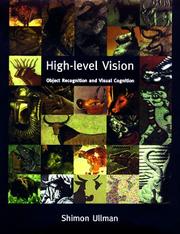
ISBN: 0262210134 0262710072 0262285355 0585360278 9780262285353 9780262710077 9780262210133 9780585360270 0262220512 9780262220514 Year: 1996 Publisher: Cambridge, Mass. MIT Press
Abstract | Keywords | Export | Availability | Bookmark
 Loading...
Loading...Choose an application
- Reference Manager
- EndNote
- RefWorks (Direct export to RefWorks)
In this book, Shimon Ullman focuses on the processes of high-level vision that deal with the interpretation and use of what is seen in the image. In particular, he examines two major problems. The first, object recognition and classification, involves recognizing objects despite large variations in appearance caused by changes in viewing position, illumination, occlusion, and object shape. The second, visual cognition, involves the extraction of shape properties and spatial relations in the course of performing visual tasks such as object manipulation, planning movements in the environment, or interpreting graphical material such as diagrams, graphs and maps.The book first takes up object recognition and develops a novel approach to the recognition of three-dimensional objects. It then studies a number of related issues in high-level vision, including object classification, scene segmentation, and visual cognition. Using computational considerations discussed throughout the book, along with psychophysical and biological data, the final chapter proposes a model for the general flow of information in the visual cortex.Understanding vision is a key problem in the brain sciences, human cognition, and artificial intelligence. Because of the interdisciplinary nature of the theories developed in this work, High-Level Vision will be of interest to readers in all three of these fields.
Cognitive psychology --- Affective and dynamic functions --- Visual perception --- Visual Perception --- Perception --- Mental Processes --- Psychological Phenomena and Processes --- Psychiatry and Psychology --- Neuroscience --- Human Anatomy & Physiology --- Health & Biological Sciences --- Psychologic Processes --- Psychologic Processes and Principles --- Psychological Processes --- Phenomena, Psychological --- Processes, Psychologic --- Processes, Psychological --- Psychological Phenomenas --- Psychological Processe --- Human Information Processing --- Information Processing, Human --- Perceptions --- Sensation --- Perception, Visual --- Perceptions, Visual --- Visual Perceptions --- Vision, Ocular --- Optics, Psychological --- Vision --- Visual discrimination --- Psychological aspects --- Visual perception. --- #TELE:MI2
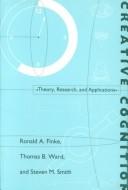
ISBN: 0262061503 0262560968 0262272652 0585031045 9780262560962 9780262061506 9780262272650 9780585031040 Year: 1996 Publisher: Cambridge, Mass. MIT Press
Abstract | Keywords | Export | Availability | Bookmark
 Loading...
Loading...Choose an application
- Reference Manager
- EndNote
- RefWorks (Direct export to RefWorks)
Creative Cognition combines original experiments with existing work in cognitive psychology to provide the first explicit account of the cognitive processes and structures that contribute to creative thinking and discovery.Creative Cognition combines original experiments with existing work in cognitive psychology to provide the first explicit account of the cognitive processes and structures that contribute to creative thinking and discovery.In separate chapters, the authors take up visualization, concept formation, categorization, memory retrieval, and problem solving. They describe novel experimental methods for studying creative cognitive processes under controlled laboratory conditions, along with techniques that can be used to generate many different types of inventions and concepts. Unlike traditional approaches, Creative Cognition considers creativity as a product of numerous cognitive processes, each of which helps to set the stage for insight and discovery. It identifies many of these processes as well as general principles of creative cognition that can be applied across a variety of different domains, with examples in artificial intelligence, engineering design, product development, architecture, education, and the visual arts.Following a summary of previous approaches to creativity, the authors present a theoretical model of the creative process. They review research involving an innovative imagery recombination technique, developed by Finke, that clearly demonstrates that creative inventions can be induced in the laboratory. They then describe experiments in category learning that support the provocative claim that the factors constraining category formation similarly constrain imagination and illustrate the role of various memory processes and other strategies in creative problem solving.
Creative thinking --- Cognition --- Imagery (Psychology) --- Visualization --- Mental Processes --- Perception --- Psychological Phenomena and Processes --- Psychiatry and Psychology --- Visual Perception --- Social Sciences --- Psychology --- Cognitive Function --- Cognitions --- Cognitive Functions --- Function, Cognitive --- Functions, Cognitive --- Perception, Visual --- Perceptions, Visual --- Visual Perceptions --- Psychologic Processes and Principles --- Perceptions --- Visualisation --- Imagery, Mental --- Images, Mental --- Mental imagery --- Mental images --- Creative thinking (Education) --- Human Information Processing --- Information Processing, Human --- Pensée créatrice --- Imagerie (Psychologie) --- Vision, Ocular --- Psychologic Processes --- Psychological Processes --- Phenomena, Psychological --- Processes, Psychologic --- Processes, Psychological --- Psychological Phenomenas --- Psychological Processe --- Sensation --- Imagination --- Visual perception --- Creative ability --- Thought and thinking --- Cognitive psychology --- Affective and dynamic functions --- Semiotics --- Cognition. --- Creative thinking. --- Imagery (Psychology). --- Visualization. --- Pensée créatrice --- COGNITIVE SCIENCES/General --- COGNITIVE SCIENCES/Psychology/Cognitive Psychology

ISBN: 0585056579 9780585056579 0791427854 0791427862 1438416067 Year: 1996 Publisher: Albany, NY : State University of New York Press,
Abstract | Keywords | Export | Availability | Bookmark
 Loading...
Loading...Choose an application
- Reference Manager
- EndNote
- RefWorks (Direct export to RefWorks)
Psychoanalytic Theory --- Psychoanalytic Interpretation --- Psychological Theory --- Behavioral Disciplines and Activities --- Psychological Phenomena and Processes --- Psychiatry and Psychology --- Psychology --- Social Sciences --- Psychologic Theory --- Psychological Theories --- Theories, Psychological --- Theory, Psychological --- Social Cognitive Theory --- Cognitive Theories, Social --- Cognitive Theory, Social --- Psychologic Theories --- Social Cognitive Theories --- Theories, Psychologic --- Theories, Social Cognitive --- Theory, Psychologic --- Theory, Social Cognitive --- Interpretation, Psychoanalytic --- Psychoanalytical Interpretation --- Interpretation, Psychoanalytical --- Interpretations, Psychoanalytic --- Interpretations, Psychoanalytical --- Psychoanalytic Interpretations --- Psychoanalytical Interpretations --- Psychoanalytical Theory --- Theory, Psychoanalytic --- Oral Character --- Character, Oral --- Characters, Oral --- Oral Characters --- Psychoanalytic Theories --- Psychoanalytical Theories --- Theories, Psychoanalytic --- Theories, Psychoanalytical --- Theory, Psychoanalytical --- Psychologic Processes --- Psychologic Processes and Principles --- Psychological Processes --- Phenomena, Psychological --- Processes, Psychologic --- Processes, Psychological --- Psychological Phenomenas --- Psychological Processe --- Lacan, Jacques, --- Lacan, Jacques --- Psychological Phenomena
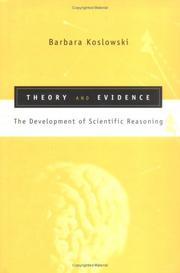
ISBN: 0585002894 0262277476 0262112094 0262512793 9780585002897 9780262112093 9780262512794 9780262277471 Year: 1996 Publisher: Cambridge, Mass. : MIT Press,
Abstract | Keywords | Export | Availability | Bookmark
 Loading...
Loading...Choose an application
- Reference Manager
- EndNote
- RefWorks (Direct export to RefWorks)
In Theory and Evidence Barbara Koslowski, long acknowledged for her empirical work in the field of cognitive-developmental research, brings into sharp focus the ways in which the standard literature both distorts and under-estimates the reasoning abilities of ordinary people. She provides the basis of a new research program for a more complete characterization of scientific reasoning, problem solving, and causality. Koslowski boldly criticizes many of the currently classic studies and musters a compelling set of arguments, backed by an exhaustive set of experiments carried out during the last decade. Theory and Evidence describes research that looks at the beliefs that people hold about the type of evidence that counts in scientific reasoning and also examines how those beliefs change with age. The primary focus is on the strategies that underlie actual scientific practice. Two general sorts of research are reported - one on hypothesis testing and the other on hypothesis revision (how people deal with evidence that disconfirms a given explanation). Koslowski argues that when scientific reasoning is operationally defined so that correct performance consists of focusing on covariation and ignoring considerations of theory or mechanisms, then subjects are often treated as engaging in flawed reasoning when, in fact, their reasoning is scientifically legitimate. Neither relying on covariation alone nor relying on theory alone constitutes a formula for success.
Reasoning --- Science --- Thinking --- Philosophy --- Humanities --- Mental Processes --- Natural Science Disciplines --- Disciplines and Occupations --- Psychological Phenomena and Processes --- Psychiatry and Psychology --- Sciences - General --- Physical Sciences & Mathematics --- Psychologic Processes and Principles --- Natural Sciences --- Physical Sciences --- Discipline, Natural Science --- Disciplines, Natural Science --- Natural Science --- Natural Science Discipline --- Physical Science --- Science, Natural --- Science, Physical --- Sciences, Natural --- Sciences, Physical --- Human Information Processing --- Information Processing, Human --- Philosophical Overview --- Hedonism --- Stoicism --- Overview, Philosophical --- Overviews, Philosophical --- Philosophical Overviews --- Philosophies --- Critical Thinking --- Thinking Skills --- Thinking Skill --- Thinking, Critical --- Sciences --- Natural science --- Science of science --- Argumentation --- Ratiocination --- Psychologic Processes --- Psychological Processes --- Phenomena, Psychological --- Processes, Psychologic --- Processes, Psychological --- Psychological Phenomenas --- Psychological Processe --- Pharmacy Philosophy --- Pharmacy Philosophies --- Philosophies, Pharmacy --- Philosophy, Pharmacy --- Thought --- Thoughts --- Reason --- Thought and thinking --- Judgment (Logic) --- Logic --- Reasoning. --- Philosophy. --- COGNITIVE SCIENCES/General --- COGNITIVE SCIENCES/Psychology/Cognitive Psychology --- Normal science --- Philosophy of science
Book
ISBN: 0262278685 0585311196 9780585311197 9780262278683 Year: 1996 Publisher: Cambridge, Mass. : MIT Press,
Abstract | Keywords | Export | Availability | Bookmark
 Loading...
Loading...Choose an application
- Reference Manager
- EndNote
- RefWorks (Direct export to RefWorks)
Consciousness. --- Experience. --- Consciousness --- Experience --- Psychophysiology --- Cognition --- Mental Processes --- Psychological Phenomena and Processes --- Psychiatry and Psychology --- Awareness --- Philosophy & Religion --- Philosophy --- Mind-Body Relationship (Physiology) --- Physiologic Psychology --- Physiological Psychology --- Psychology, Physiologic --- Mind-Body Relations (Physiology) --- Psychology, Physiological --- Mind Body Relations (Physiology) --- Mind Body Relationship (Physiology) --- Mind-Body Relation (Physiology) --- Mind-Body Relationships (Physiology) --- Physiologic Psychologies --- Psychologies, Physiologic --- Relation, Mind-Body (Physiology) --- Relations, Mind-Body (Physiology) --- Relationship, Mind-Body (Physiology) --- Relationships, Mind-Body (Physiology) --- Psychosomatic Medicine --- Mind-Body Relations, Metaphysical --- Consciousnesses --- Situation Awareness --- Situational Awareness --- Awareness, Situation --- Awareness, Situational --- Awarenesses --- Awarenesses, Situation --- Awarenesses, Situational --- Situation Awarenesses --- Situational Awarenesses --- Psychologic Processes --- Psychologic Processes and Principles --- Psychological Processes --- Phenomena, Psychological --- Processes, Psychologic --- Processes, Psychological --- Psychological Phenomenas --- Psychological Processe --- Human Information Processing --- Information Processing, Human --- Cognitive Function --- Cognitions --- Cognitive Functions --- Function, Cognitive --- Functions, Cognitive --- Knowledge, Theory of --- Psychology --- Reality --- Pragmatism --- Apperception --- Mind and body --- Perception --- Spirit --- Self --- Psychological Phenomena --- Psychiatry

ISBN: 0585042942 9780585042947 0791428850 0791428869 1438405766 Year: 1996 Publisher: Albany State University of New York Press
Abstract | Keywords | Export | Availability | Bookmark
 Loading...
Loading...Choose an application
- Reference Manager
- EndNote
- RefWorks (Direct export to RefWorks)
How to Build a Theory in Cognitive Science specifies the characteristics of fruitful interdisciplinary theories in cognitive science and shows how they differ from the successful theories in the individual disciplines composing the cognitive sciences. It articulates a method for integrating the various disciplines successfully so that unified, truly interdisciplinary theories are possible. This book makes three contributions of utmost importance. First, it provides a long-overdue, systematic examination of the field of cognitive science itself. Second, it provides a template for linking domains without loss of autonomy. This philosophical treatment of integration serves as a blueprint for future endeavors. Third, the book provides a solid theoretical foundation that will prevent future missteps and enhance collaboration.
Philosophy of mind. --- Philosophy and cognitive science. --- Functionalism (Psychology) --- Reductionism. --- Cognitive science --- Cognitive Science. --- Philosophy. --- Mental Processes. --- Philosophy of mind --- Philosophy and cognitive science --- Reductionism --- Psychology --- Humanities --- Psychological Phenomena and Processes --- Psychiatry and Psychology --- Behavioral Sciences --- Behavioral Disciplines and Activities --- Philosophy --- Cognitive Science --- Mental Processes --- Philosophy & Religion --- Speculative Philosophy --- Proxemics --- Behavioral Science --- Proxemic --- Science, Behavioral --- Sciences, Behavioral --- Psychologic Processes --- Psychologic Processes and Principles --- Psychological Processes --- Phenomena, Psychological --- Processes, Psychologic --- Processes, Psychological --- Psychological Phenomenas --- Psychological Processe --- Factors, Psychological --- Psychological Factors --- Psychological Side Effects --- Psychologists --- Psychosocial Factors --- Side Effects, Psychological --- Factor, Psychological --- Factor, Psychosocial --- Factors, Psychosocial --- Psychological Factor --- Psychological Side Effect --- Psychologist --- Psychosocial Factor --- Side Effect, Psychological --- Science --- Cognitive science and philosophy --- Mind, Philosophy of --- Mind, Theory of --- Theory of mind --- Metaphysics --- Philosophical anthropology --- Human Information Processing --- Information Processing, Human --- Pharmacy Philosophy --- Philosophical Overview --- Hedonism --- Stoicism --- Overview, Philosophical --- Overviews, Philosophical --- Pharmacy Philosophies --- Philosophical Overviews --- Philosophies --- Philosophies, Pharmacy --- Philosophy, Pharmacy --- Cognitive Sciences --- Science, Cognitive --- Sciences, Cognitive --- Functional psychology --- Psychological Phenomena --- Psychiatry

ISBN: 0585042713 9780585042718 0791429296 079142930X 0791497976 Year: 1996 Publisher: Albany, NY : State University of New York Press,
Abstract | Keywords | Export | Availability | Bookmark
 Loading...
Loading...Choose an application
- Reference Manager
- EndNote
- RefWorks (Direct export to RefWorks)
Dreams. --- Dream interpretation. --- Civilization, Modern --- Culture. --- Dreams --- Dream interpretation --- Anthropology, Cultural --- Sleep --- Sociology --- Imagination --- Anthropology --- Psychophysiology --- Social Sciences --- Cognition --- Psychological Phenomena and Processes --- Mental Processes --- Anthropology, Education, Sociology and Social Phenomena --- Psychiatry and Psychology --- Culture --- Parapsychology & Occult Sciences --- Nightmares --- Dream --- Nightmare --- Human Information Processing --- Information Processing, Human --- Psychologic Processes --- Psychologic Processes and Principles --- Psychological Processes --- Phenomena, Psychological --- Processes, Psychologic --- Processes, Psychological --- Psychological Phenomenas --- Psychological Processe --- Cognitive Function --- Cognitions --- Cognitive Functions --- Function, Cognitive --- Functions, Cognitive --- Science, Social --- Sciences, Social --- Social Science --- Mind-Body Relationship (Physiology) --- Physiologic Psychology --- Physiological Psychology --- Psychology, Physiologic --- Mind-Body Relations (Physiology) --- Psychology, Physiological --- Mind Body Relations (Physiology) --- Mind Body Relationship (Physiology) --- Mind-Body Relation (Physiology) --- Mind-Body Relationships (Physiology) --- Physiologic Psychologies --- Psychologies, Physiologic --- Relation, Mind-Body (Physiology) --- Relations, Mind-Body (Physiology) --- Relationship, Mind-Body (Physiology) --- Relationships, Mind-Body (Physiology) --- Psychosomatic Medicine --- Mind-Body Relations, Metaphysical --- Beliefs --- Cultural Background --- Cultural Relativism --- Customs --- Background, Cultural --- Backgrounds, Cultural --- Belief --- Cultural Backgrounds --- Cultural Relativisms --- Cultures --- Relativism, Cultural --- Relativisms, Cultural --- Imaginations --- General Social Development and Population --- Sleep Habits --- Sleeping Habit --- Sleeping Habits --- Habit, Sleep --- Habit, Sleeping --- Habits, Sleep --- Habits, Sleeping --- Sleep Habit --- Sleepiness --- Cultural Anthropology --- Material Culture --- Ethnography --- Culture, Material --- Ethnographies --- Material Cultures --- Qualitative Research --- Modern civilization --- Modernity --- Civilization --- Renaissance --- Analysis, Dream --- Dream analysis --- Interpretation, Dream --- Dreaming --- Subconsciousness --- Visions --- Twentieth century --- History --- Interpretation --- Psychological Phenomena --- Psychiatry
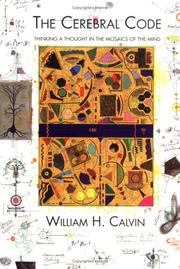
ISBN: 0262032414 0262269716 0585099146 9780585099149 9780262269711 9780262032414 9780262531542 0262531542 Year: 1996 Publisher: Cambridge, Mass. : MIT Press,
Abstract | Keywords | Export | Availability | Bookmark
 Loading...
Loading...Choose an application
- Reference Manager
- EndNote
- RefWorks (Direct export to RefWorks)
The Cerebral Code proposes a bold new theory for how Darwin's evolutionary processes could operate in the brain, improving ideas on the time scale of thought and action. Jung said that dreaming goes on continuously but you can't see it when you're awake, just as you can't see the stars in the daylight because it is too bright. Calvin's is a theory for what goes on, hidden from view by the glare of waking mental operations, that produces our peculiarly human consciousness and versatile intelligence. Shuffled memories, no better than the jumble of our nighttime dreams, can evolve subconsciously into something of quality, such as a sentence to speak aloud. The "interoffice mail" circuits of the cerebral cortex are nicely suited for this job because they're good copying machines, able to clone the firing pattern within a hundred-element hexagonal column. That pattern, Calvin says, is the "cerebral code" representing an object or idea, the cortical-level equivalent of a gene or meme. Transposed to a hundred-key piano, this pattern would be a melody - a characteristic tune for each word of your vocabulary and each face you remember. Newly cloned patterns are tacked onto a temporary mosaic, much like a choir recruiting additional singers during the "Hallelujah Chorus." But cloning may "blunder slightly" or overlap several patterns - and that variation makes us creative. Like dueling choirs, variant hexagonal mosaics compete with one another for territory in the association cortex, their successes biased by memorized environments and sensory inputs. Unlike selectionist theories of mind, Calvin's mosaics can fully implement all six essential ingredients of Darwin's evolutionary algorithm, repeatedly turning the quality crank as we figure out what to say next. Even the optional ingredients known to speed up evolution (sex, island settings, climate change) have cortical equivalents that help us think up a quick comeback during conversation. Mosaics also supply "audit trail" structures needed for universal grammar, helping you understand nested phrases such as "I think I saw him leave to go home." And, as a chapter title proclaims, mosaics are a "A Machine for Metaphor." Even analogies can compete to generate a stratum of concepts, that are inexpressible except by roundabout, inadequate means - as when we know things of which we cannot speak.
Cognitive neuroscience --- Thought and thinking --- Cerebral cortex --- Natural selection --- Mental Processes --- Central Nervous System --- Cognition --- Psychophysiology --- Biological Science Disciplines --- Learning --- Psychological Phenomena and Processes --- Nervous System --- Natural Science Disciplines --- Anatomy --- Disciplines and Occupations --- Psychiatry and Psychology --- Memory --- Thinking --- Physiology --- Consciousness --- Brain --- Human Anatomy & Physiology --- Health & Biological Sciences --- Neuroscience --- Encephalon --- Brains --- Encephalons --- Consciousnesses --- Critical Thinking --- Thinking Skills --- Thinking Skill --- Thinking, Critical --- Anatomies --- Natural Sciences --- Physical Sciences --- Discipline, Natural Science --- Disciplines, Natural Science --- Natural Science --- Natural Science Discipline --- Physical Science --- Science, Natural --- Science, Physical --- Sciences, Natural --- Sciences, Physical --- Nervous Systems --- System, Nervous --- Systems, Nervous --- Psychologic Processes and Principles --- Memory Training --- Phenomenography --- Training, Memory --- Biologic Sciences --- Biological Science --- Science, Biological --- Sciences, Biological --- Biological Sciences --- Life Sciences --- Biologic Science --- Biological Science Discipline --- Discipline, Biological Science --- Disciplines, Biological Science --- Life Science --- Science Discipline, Biological --- Science Disciplines, Biological --- Science, Biologic --- Science, Life --- Sciences, Biologic --- Sciences, Life --- Mind-Body Relationship (Physiology) --- Physiologic Psychology --- Physiological Psychology --- Psychology, Physiologic --- Mind-Body Relations (Physiology) --- Psychology, Physiological --- Mind Body Relations (Physiology) --- Mind Body Relationship (Physiology) --- Mind-Body Relation (Physiology) --- Mind-Body Relationships (Physiology) --- Physiologic Psychologies --- Psychologies, Physiologic --- Relation, Mind-Body (Physiology) --- Relations, Mind-Body (Physiology) --- Relationship, Mind-Body (Physiology) --- Relationships, Mind-Body (Physiology) --- Cognitive Function --- Cognitions --- Cognitive Functions --- Function, Cognitive --- Functions, Cognitive --- Cerebrospinal Axis --- Axi, Cerebrospinal --- Axis, Cerebrospinal --- Central Nervous Systems --- Cerebrospinal Axi --- Nervous System, Central --- Nervous Systems, Central --- System, Central Nervous --- Systems, Central Nervous --- Human Information Processing --- Information Processing, Human --- Darwinism --- Selection, Natural --- Brain mantle --- Cortex, Cerebral --- Cortex cerebri --- Mantle of brain --- Pallium (Brain) --- Mind --- Thoughts --- Cognitive neuropsychology --- Thought --- Executive Function --- Psychologic Processes --- Psychological Processes --- Phenomena, Psychological --- Processes, Psychologic --- Processes, Psychological --- Psychological Phenomenas --- Psychological Processe --- Memory Consolidation --- Education --- Psychosomatic Medicine --- Mind-Body Relations, Metaphysical --- Genetics --- Variation (Biology) --- Biological invasions --- Evolution (Biology) --- Heredity --- Telencephalon --- Educational psychology --- Philosophy --- Psychology --- Intellect --- Logic --- Perception --- Psycholinguistics --- Self --- Cognitive science --- Neuropsychology --- Cognitive neuroscience. --- Thought and thinking. --- Cerebral cortex. --- Natural selection. --- Humans --- Physiology. --- Affective and dynamic functions --- Physiology of nerves and sense organs

ISBN: 0262082489 0262519852 0262275678 0585003416 9780262275675 9780585003412 9780262519854 9780262082488 Year: 1996 Publisher: Cambridge (Mass.) : MIT press,
Abstract | Keywords | Export | Availability | Bookmark
 Loading...
Loading...Choose an application
- Reference Manager
- EndNote
- RefWorks (Direct export to RefWorks)
Connectionism --- Philosophy of mind --- Cognition --- Psychology and philosophy --- Behavioral Sciences --- Mathematical Concepts --- Pattern Recognition, Automated --- Mental Processes --- Artificial Intelligence --- Psychological Phenomena and Processes --- Computing Methodologies --- Phenomena and Processes --- Information Science --- Behavioral Disciplines and Activities --- Psychiatry and Psychology --- Neural Networks (Computer) --- Psychology --- Philosophy --- Philosophy & Religion --- Speculative Philosophy --- Philosophy and psychology --- Mind, Philosophy of --- Mind, Theory of --- Theory of mind --- Cognitive science --- Metaphysics --- Philosophical anthropology --- Connexionism --- Cognition. --- Connectionism. --- Philosophy of mind. --- Psychology and philosophy. --- Cognitive Function --- Cognitions --- Cognitive Functions --- Function, Cognitive --- Functions, Cognitive --- Factors, Psychological --- Psychological Factors --- Psychological Side Effects --- Psychologists --- Psychosocial Factors --- Side Effects, Psychological --- Factor, Psychological --- Factor, Psychosocial --- Factors, Psychosocial --- Psychological Factor --- Psychological Side Effect --- Psychologist --- Psychosocial Factor --- Side Effect, Psychological --- Connectionist Models --- Models, Neural Network --- Neural Network Models --- Perceptrons --- Connectionist Model --- Model, Connectionist --- Model, Neural Network --- Models, Connectionist --- Network Model, Neural --- Network Models, Neural --- Network, Neural (Computer) --- Networks, Neural (Computer) --- Neural Network (Computer) --- Neural Network Model --- Perceptron --- Information Sciences --- Science, Information --- Sciences, Information --- High Performance Computing --- Methodologies, Computing --- Computing Methodology --- Computing, High Performance --- Methodology, Computing --- Performance Computing, High --- Computational Intelligence --- AI (Artificial Intelligence) --- Computer Reasoning --- Computer Vision Systems --- Knowledge Acquisition (Computer) --- Knowledge Representation (Computer) --- Machine Intelligence --- Acquisition, Knowledge (Computer) --- Computer Vision System --- Intelligence, Artificial --- Intelligence, Computational --- Intelligence, Machine --- Knowledge Representations (Computer) --- Reasoning, Computer --- Representation, Knowledge (Computer) --- System, Computer Vision --- Systems, Computer Vision --- Vision System, Computer --- Vision Systems, Computer --- Human Information Processing --- Information Processing, Human --- Automated Pattern Recognition --- Pattern Recognition System --- Pattern Recognition Systems --- Concept, Mathematical --- Concepts, Mathematical --- Mathematical Concept --- Proxemics --- Behavioral Science --- Proxemic --- Science, Behavioral --- Sciences, Behavioral --- Psychologic Processes and Principles --- Heuristics --- Psychologic Processes --- Psychological Processes --- Phenomena, Psychological --- Processes, Psychologic --- Processes, Psychological --- Psychological Phenomenas --- Psychological Processe --- Computational Neural Networks --- Computational Neural Network --- Computer Neural Network --- Computer Neural Networks --- Network, Computational Neural --- Network, Computer Neural --- Networks, Computational Neural --- Networks, Computer Neural --- Neural Network, Computational --- Neural Network, Computer --- Neural Networks, Computational
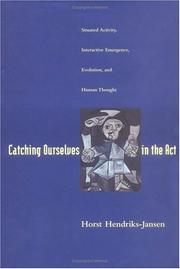
ISBN: 0262082462 0262275260 0585003335 9780585003337 9780262082464 9780262275262 Year: 1996 Publisher: Cambridge, Mass. : MIT Press,
Abstract | Keywords | Export | Availability | Bookmark
 Loading...
Loading...Choose an application
- Reference Manager
- EndNote
- RefWorks (Direct export to RefWorks)
Intentionalism --- Philosophy of mind --- Philosophical anthropology --- Cognitive science --- Artificial intelligence --- Biological Processes --- Models, Theoretical --- Genetic Processes --- Behavior and Behavior Mechanisms --- Mental Processes --- Psychiatry and Psychology --- Genetic Phenomena --- Psychological Phenomena and Processes --- Investigative Techniques --- Biological Phenomena --- Phenomena and Processes --- Analytical, Diagnostic and Therapeutic Techniques and Equipment --- Behavior --- Cognition --- Biological Evolution --- Models, Psychological --- Social Sciences --- Psychology --- Model, Mental --- Model, Psychological --- Models, Mental --- Models, Psychologic --- Psychological Models --- Mental Model --- Mental Models --- Model, Psychologic --- Psychologic Model --- Psychologic Models --- Psychological Model --- Evolution, Biological --- Cognitive Function --- Cognitions --- Cognitive Functions --- Function, Cognitive --- Functions, Cognitive --- Acceptance Process --- Acceptance Processes --- Behaviors --- Process, Acceptance --- Processes, Acceptance --- Biologic Phenomena --- Biological Phenomenon --- Biological Process --- Phenomena, Biological --- Phenomena, Biologic --- Phenomenon, Biological --- Process, Biological --- Processes, Biological --- Investigative Technics --- Investigative Technic --- Investigative Technique --- Technic, Investigative --- Technics, Investigative --- Technique, Investigative --- Techniques, Investigative --- Psychologic Processes and Principles --- Genetic Concepts --- Genetic Phenomenon --- Genetic Process --- Concept, Genetic --- Concepts, Genetic --- Genetic Concept --- Phenomena, Genetic --- Phenomenon, Genetic --- Process, Genetic --- Processes, Genetic --- Human Information Processing --- Information Processing, Human --- Experimental Model --- Experimental Models --- Mathematical Model --- Model, Experimental --- Models (Theoretical) --- Models, Experimental --- Models, Theoretic --- Theoretical Study --- Mathematical Models --- Model (Theoretical) --- Model, Mathematical --- Model, Theoretical --- Models, Mathematical --- Studies, Theoretical --- Study, Theoretical --- Theoretical Model --- Theoretical Models --- Theoretical Studies --- AI (Artificial intelligence) --- Artificial thinking --- Electronic brains --- Intellectronics --- Intelligence, Artificial --- Intelligent machines --- Machine intelligence --- Thinking, Artificial --- Anthropology, Philosophical --- Man (Philosophy) --- Mind, Philosophy of --- Mind, Theory of --- Theory of mind --- Act psychology --- Action psychology --- Sociobiology --- Psychologic Processes --- Psychological Processes --- Phenomena, Psychological --- Processes, Psychologic --- Processes, Psychological --- Psychological Phenomenas --- Psychological Processe --- Molecular Biology --- Computer Simulation --- Systems Theory --- Bionics --- Digital computer simulation --- Electronic data processing --- Logic machines --- Machine theory --- Self-organizing systems --- Simulation methods --- Fifth generation computers --- Neural computers --- Science --- Civilization --- Life --- Ontology --- Humanism --- Persons --- Philosophy --- Metaphysics --- Intentionalism. --- Philosophy of mind. --- Philosophical anthropology. --- Cognitive science. --- Artificial intelligence. --- Humans --- Behaviour --- Effects of --- Mental processes
| Listing 1 - 10 of 18 | << page >> |
Sort by
|

 Search
Search Feedback
Feedback About
About Help
Help News
News